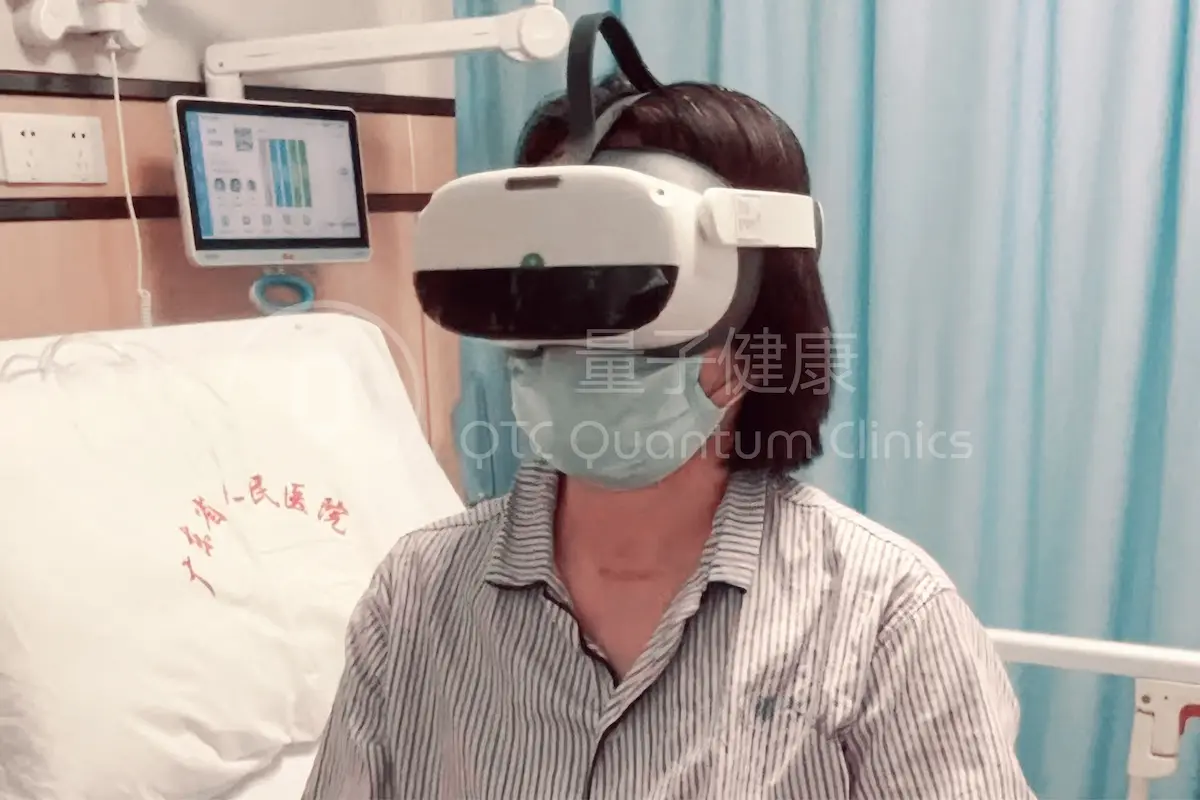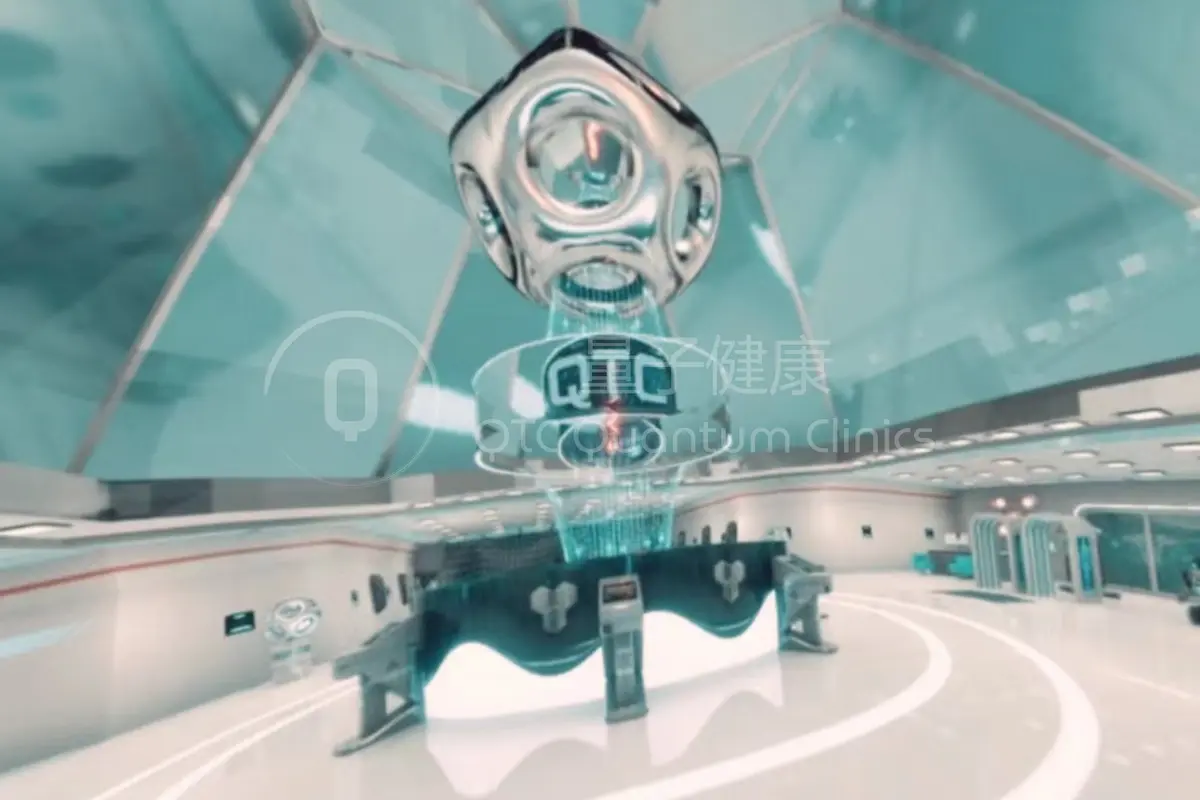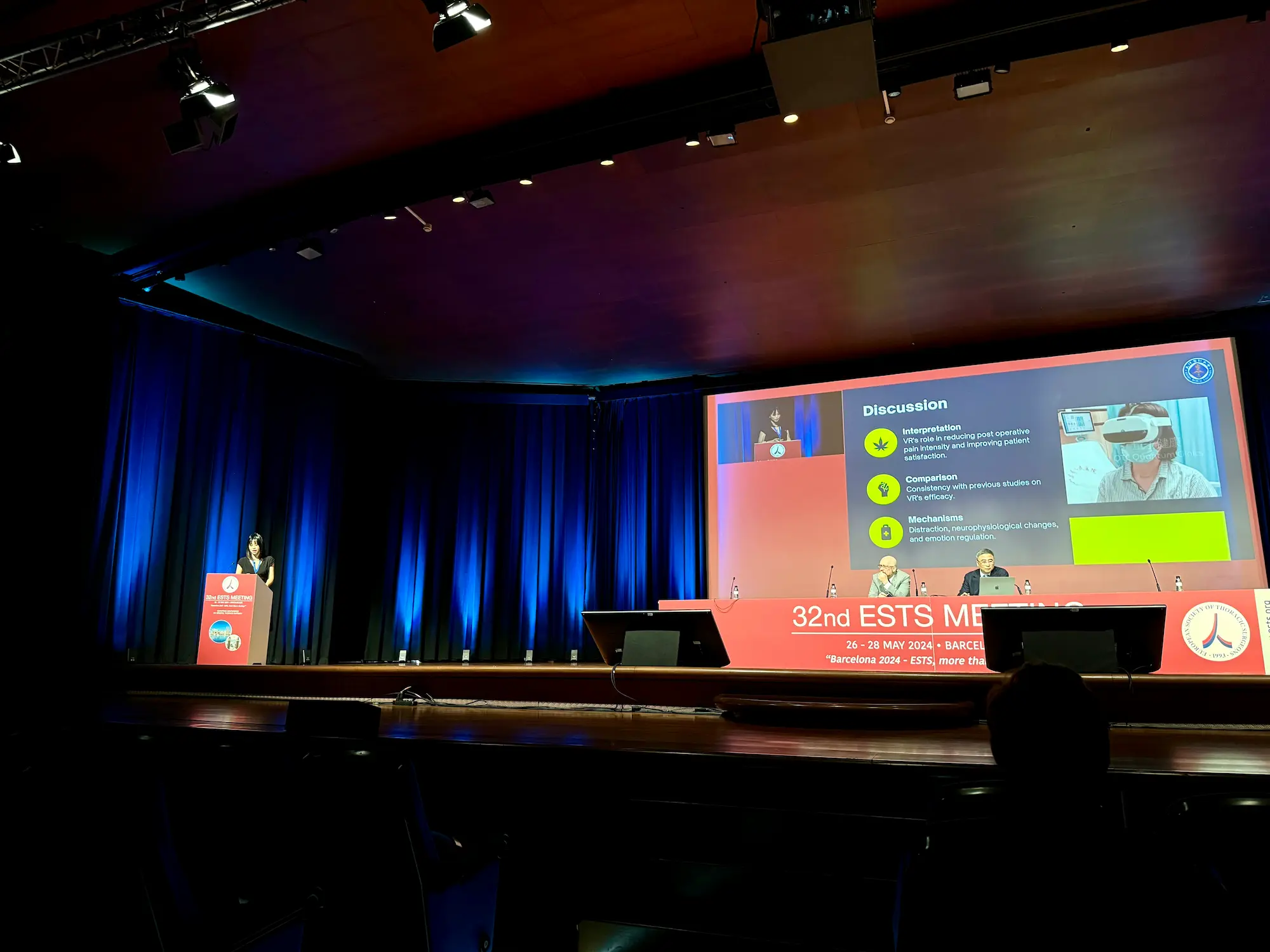Revolutionizing Pain Management through Virtual Reality
At QTC, we are at the forefront of transforming pain management through the power of virtual reality. Our mission is to pioneer the development and application of VR technology as a Type III medical device, offering a groundbreaking non-invasive non-pharmacological therapy (NINPT) for treating acute pain. We are dedicated to advancing medical science with rigorous clinical trials to prove VR therapy's effectiveness in pain management.
Supported by top investors, including Tencent, we aim to enhance patient quality of life by merging technology with healthcare. Our vision is to provide a pain solution that is effective, non-addictive, scalable, and free from side effects.

Science
The science of using Virtual Reality (VR) to treat pain is rooted in the concept of immersive distraction and the modulation of pain pathways in the brain. VR technology engages patients in a fully immersive, multi-sensory environment that diverts their attention away from the pain, effectively reducing pain perception. This method leverages the brain's ability to influence pain signals through cognitive processes. By engaging the patient's visual, auditory, and sometimes even tactile senses in a controlled, virtual world, VR therapy can alter the way the brain processes pain signals, leading to significant pain relief.
Research and clinical trials have demonstrated that VR can effectively decrease acute pain, anxiety, and the need for pain medication, by offering a novel, interactive way to manage and control pain experiences. This innovative approach not only addresses physical symptoms but also contributes to the emotional and psychological well-being of patients, showcasing VR's potential as a holistic pain management solution.

Product
We customize VR pain relief treatments for patients based on their specific pain conditions. In immersive, gamified environments, patients undergo a series of functional training exercises aimed at pain relief, including breathing exercises, progressive relaxation training, gate control training, and attention diversion training. Within these realistic settings, patients learn to control their breathing, relax muscles, increase pain tolerance, and deeply engage in activities that divert attention from pain, all in an easy, relaxing, and stress-free environment.

News
We are honored to announce that our pioneering research on the use of QTC Virtual Reality for pain management post-thoracoscopic surgery has been selected as one of the six global finalist for ESTS-Grillo Award. The Grillo Award was stablished in 2009 in honor of Professor Hermes Grillo of Harvard Medical School. The award recognizes groundbreaking and innovative research that advances the field of thoracic surgery.
Ms. Yi LU (QTC's CEO) presented the paper at the 32nd European Conference on General Thoracic Surgery (ESTS2024), one of the most prestigious conferences in the field. This recognition at the conference, held in Barcelona, Spain, showcases the groundbreaking impact of our work at QTC and the potential of QTC's VR technology to revolutionize post-operative care.

